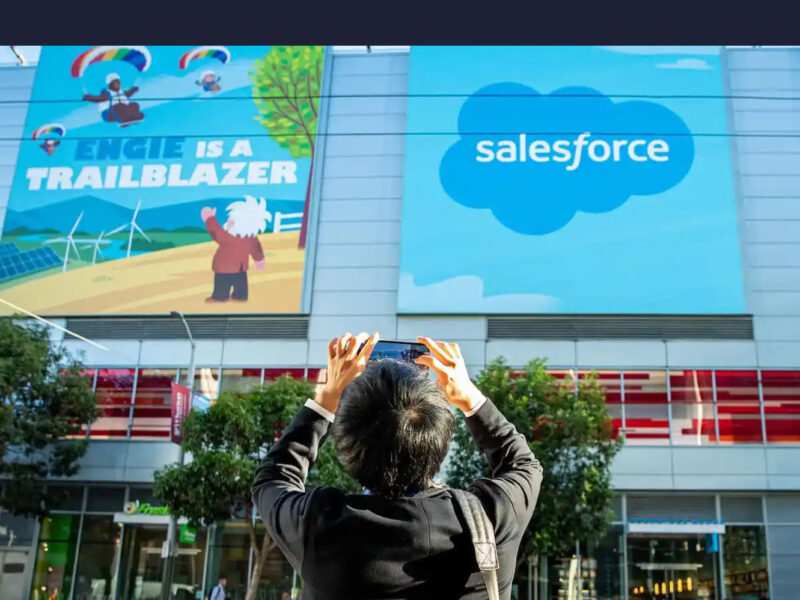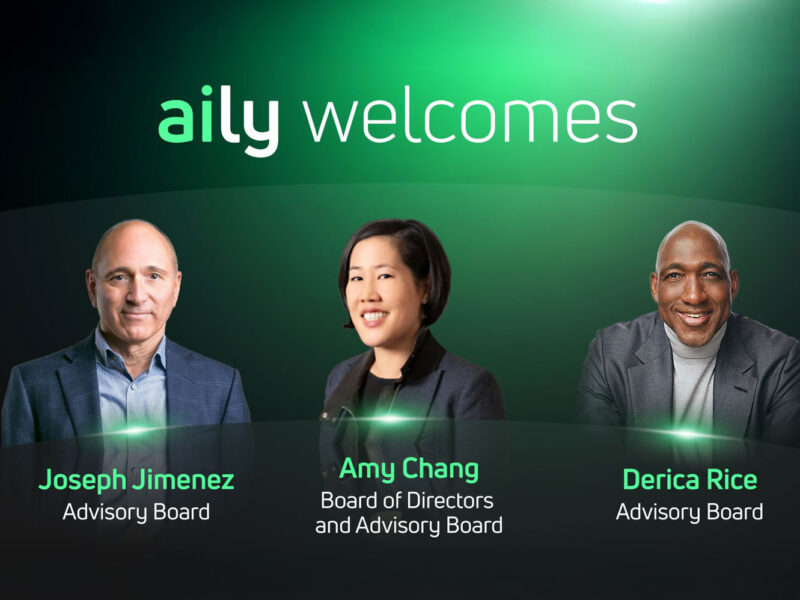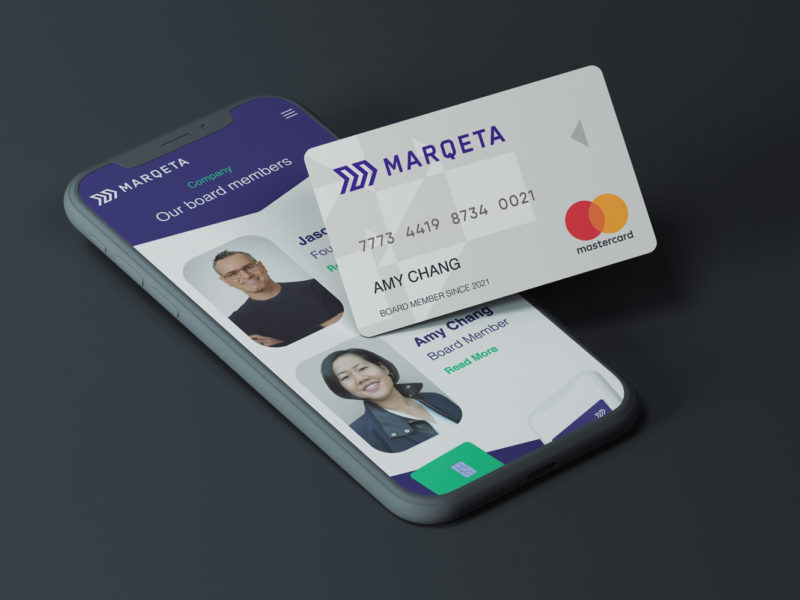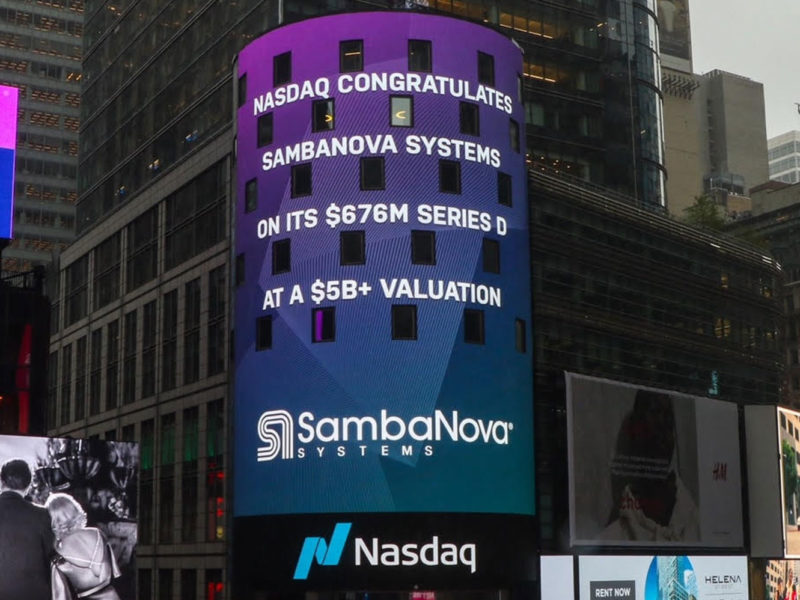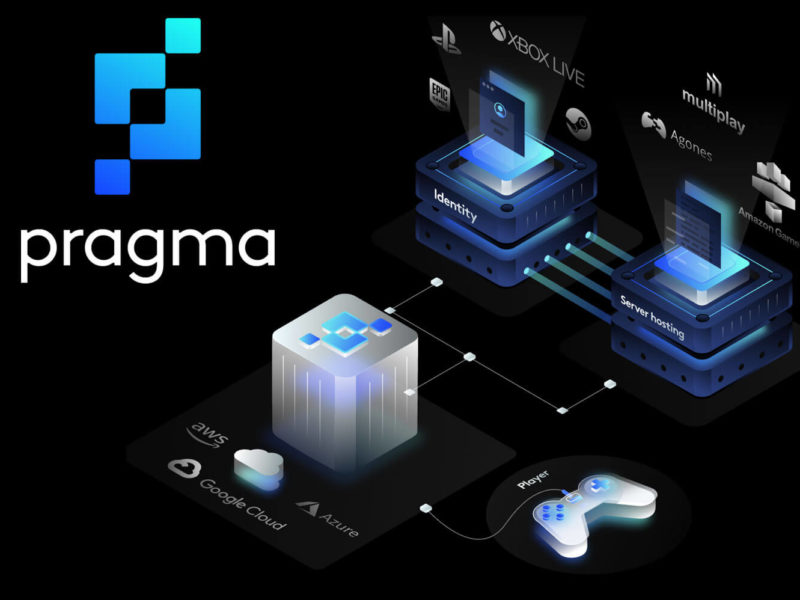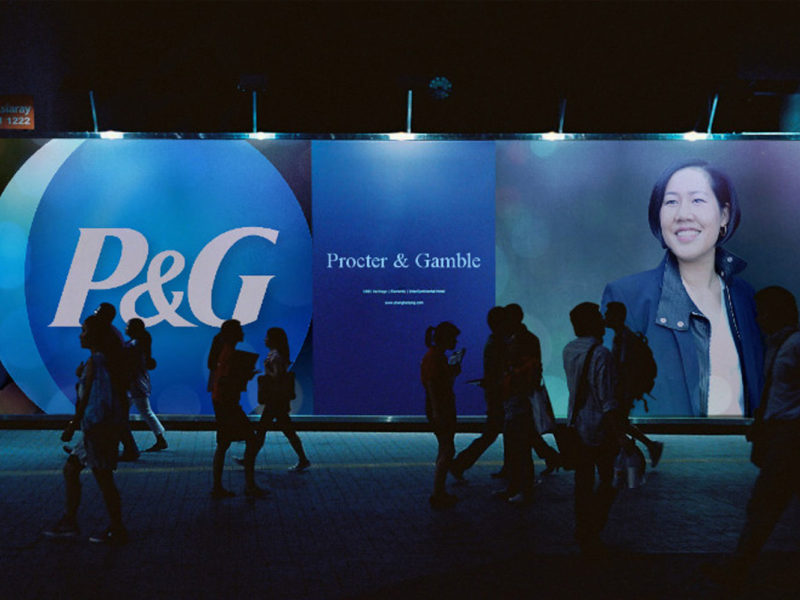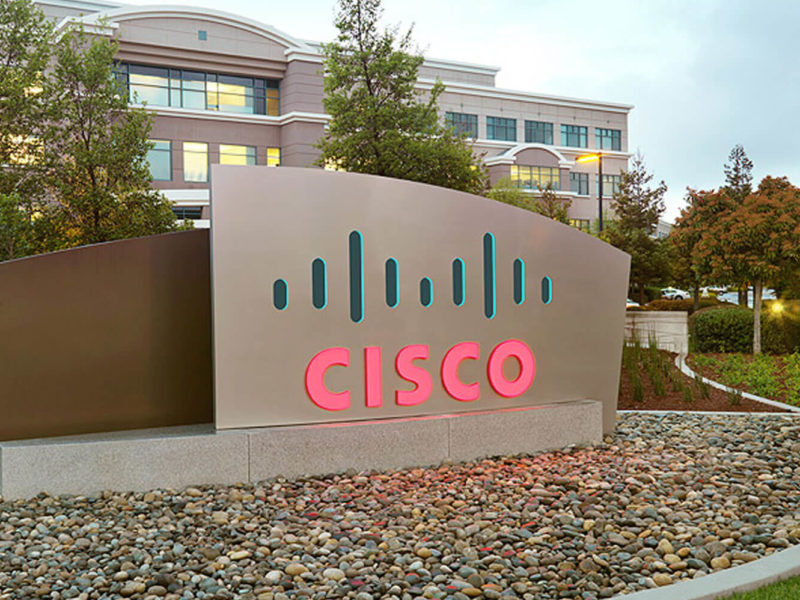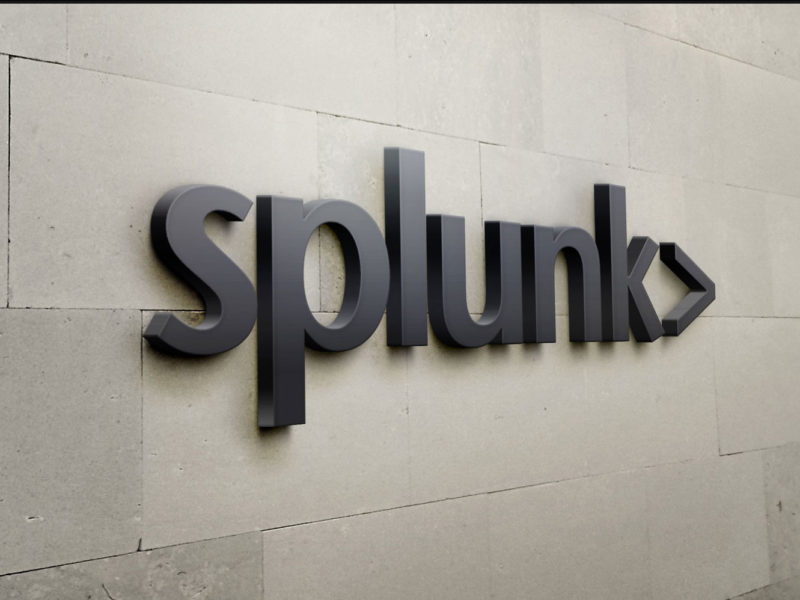17 Feb Decibel – Lean into the Fear
Amy Chang, Founder of Accompany: Lean Into the Fear
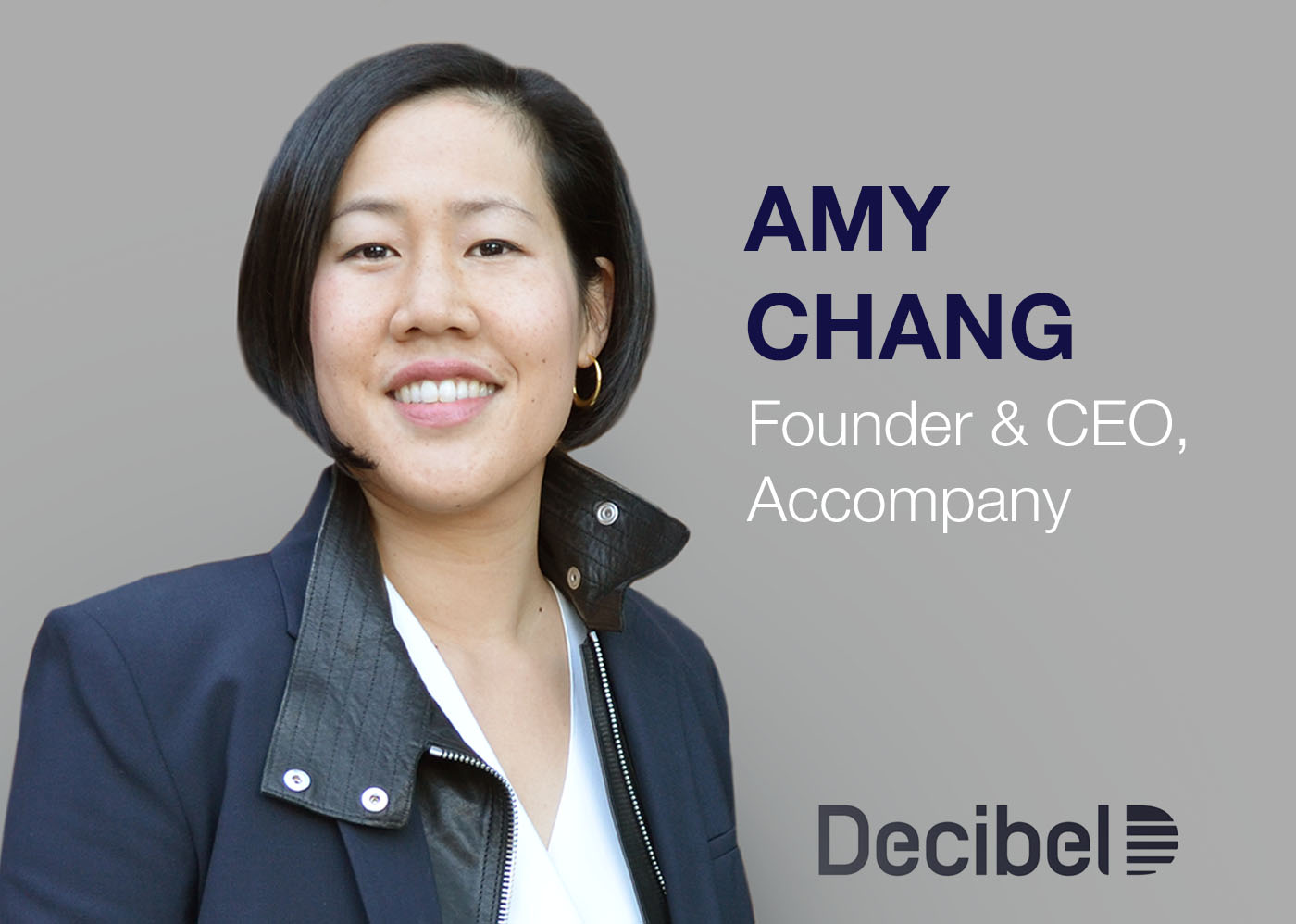
Amy Chang is the Founder of Accompany, a relationship intelligence platform that uses machine learning and AI to help business professionals enhance and grow their most important relationships. On today’s episode, Jon Sakoda speaks with Amy Chang about her journey to Founder, including the unconventional way she chose between job offers at Google and Yahoo and how her husband finally got her to stop waking him up at 3 AM with new ideas.
- Why You Should Normalize Imposter Syndrome [8:05-10:05] – Amy knows imposter syndrome can follow you throughout your career and affects more founders than many believe. By vocalizing her doubts and concerns with other coworkers, she felt like she wasn’t alone and gained more confidence in herself. Listen to learn why talking about imposter syndrome can help you channel it into constructive emotion.
- How To Be In Tune With Your Team [10:46-17:24] – Being a great leader means pushing your team to their full potential. To do so effectively, Amy tailors each message to the culture of the team and its leader. Listen to learn why having an intimate knowledge of your team members allows you to set goals appropriately.
- Lean Into The Fear Of The Unknown [22:17-23:49] – As a first-time founder, the unknowns of the journey ahead can be intimidating but Amy believes in utilizing that fear to motivate yourself. Get ahead of the fear by working even harder and always be thinking three steps ahead. Listen to hear how to harness the power of fear.
- Don’t Dwell On Your Guilt [29:23-33:17] – Founding a startup comes with sacrifices and guilt, especially if you are a parent. As a mom, Amy tries not to tear herself down if she can’t be the perfect founder, spouse, and mom in one week. Listen to learn why you should be more forgiving of yourself and approach every week with a refreshed outlook.
Excited to share the latest “Founders Helping Founders” podcast with @_amychang – for future founders that want to walk out of a big company to start something new, you must “Lean Into the Fear” in order to take the leap. Great words of wisdom in this week’s episode 👇 https://t.co/sJKPuOpGr2
— Jon Sakoda (@jonsakoda) February 17, 2022
Learn to use the fear in a much more functional way, because the fear can help make certain that you are covering all the angles and edges, and you are thinking two, three steps ahead.
Quick Takes
On Managing Guilt
Don’t waste time with a lot of guilt or second guessing yourself. You are just all the results of the decisions that you’ve made over an accumulated period of time. And whatever journey it was that took to get you here, every one of those decisions accumulated to create that journey… I think on any given week, you can be excellent at two of the three most important things in many people’s lives. And one is of course work, but one is of course parenting, and another is being a great spouse. And I think expecting three out of three every week is unrealistic and very unkind to yourself…if I can bat two out of three on any given week, I am just gonna let the other one not consume me with guilt and be okay with that. Because next week is another week, and I can come back on one of the ones that I wasn’t fabulous on.
Match Your Future Company Culture
If you are thinking about founding, but you’ve decided you want to do that as step two, and step one, you want to go to a company first and experience that, pick one whose culture you think is closest to the DNA that you would establish for your own startup. Pick one where as much of the learning as possible is going to be relevant and transportable to you as you found.
For each founder, the M&A story is unique and there is no one-size-fits-all approach. @_amychang shares her criteria beyond shareholder value:
– product impact
– culture & values
– autonomy & leadership oppsMore from Amy on her founder journey 👇https://t.co/ZxMWKxyRvi
— Decibel (@DecibelVC) November 12, 2020
Transcript
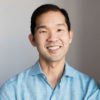
Jon Sakoda: I would love to start at the very beginning. I know that you have a very personal journey about where you grew up and the house that you grew up in, and how you eventually made your way out here to Silicon Valley. So if you don’t mind, could we start there?
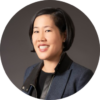
Amy Chang: I grew up in Austin, Texas, and was born and raised there all 18 years in a giant nerd family. We seem to only produce engineers. So, both parents are computer scientists. My mom worked at IBM for 40+ years in Austin. And they just—you know, we were a bunch of nerds. We watched Star Trek: Next Gen. My dad and I, every single night at 9:00 PM, all the reruns. So I think I’ve seen every episode of Next Gen ever. And then my sister, too, is an engineer. So, we’re just a very nerdy family who likes to have fun together.
But we grew up—it was funny, there were probably, what, 19 other Chinese people in Austin? Houston had a high density, but not Austin. It was interesting. I didn’t understand the concept of network yet then. But we had a very narrow network then. It was only coming here to California and being here that widened. The scope of it widened.
JON SAKODA: Welcome to the Decibel Podcast. I am excited to welcome one of our founder advisors, Amy Chang, the founder of Accompany. Her startup was successfully acquired by Cisco a couple of years ago, and she is now an investor, advisor, and board member to many great startups. She has been involved with Decibel since the very beginning, and I am so excited to welcome her to our show.
Amy, welcome to the Decibel Podcast.
AMY CHANG: Hello, everyone. Thanks for tuning in. And Jon, thanks for having me.
JON SAKODA: Yeah. I would love to start at the very beginning. I know that you have a very personal journey about where you grew up and the house that you grew up in, and how you eventually made your way out here to Silicon Valley. So if you don’t mind, could we start there?
AMY CHANG: We absolutely can. So, I grew up in Austin, Texas, and was born and raised there all 18 years in a giant nerd family. We seem to only produce engineers. So, both parents are computer scientists. My mom worked at IBM for 40+ years in Austin. And they just—you know, we were a bunch of nerds. We watched Star Trek: Next Gen. My dad and I, every single night at 9:00 PM, all the reruns. So I think I’ve seen every episode of Next Gen ever. And then my sister, too, is an engineer. So, we’re just a very nerdy family who likes to have fun together.
But we grew up—it was funny, there were probably, what, 19 other Chinese people in Austin? Houston had a high density, but not Austin. It was interesting. I didn’t understand the concept of network yet then. But we had a very narrow network then. It was only coming here to California and being here that widened. The scope of it widened.
JON SAKODA: So, were your parents first generation immigrants?
AMY CHANG: They were. And that characteristic came through very heavily. I mean, they are so fabulous. You know, they still, for example, rinse out Ziploc bags and dry them off and reuse them, which is great. I mean, environmental sustainability-wise, heck yes. And even I find myself doing that now ‘cause I don’t want plastics floating around everywhere.
JON SAKODA: And did your parents, given that they were engineers, have expectations for you as to what you were going to do with your career?
AMY CHANG: Oh my God, yes. You want to hear a funny story? So, actually, when I designed post- master’s, ‘cause my master’s was in electrical engineering, right? And I decided that I wanted to go to McKinsey, because I’d spent my summers doing chip design. So, Intel, AMD, etc. Great places. But I really felt like I was missing this whole other half of the business world, which was actually on the commercialization side. So I wanted to just understand more.
So I ended up at McKinsey. And they were like, “McKinsey?” And my dad said, “You know, I did some research on this. This company, they don’t make anything. They don’t build anything. Like, what do they do besides talk?” It was so funny.
JON SAKODA: Your dad seems like a wise and observant figure.
AMY CHANG: He’s hilarious. They both really had wanted me to stay for my PhD, and they were a little bit sad that I wanted to go into industry already. And then it was very sad for them that I didn’t actually use my double E degree, right? They did not love that.
JON SAKODA: And tell me a little bit about how you made your way eventually out to Silicon Valley.
AMY CHANG: Well, we had saved up enough money to send me to UT Austin. And I was lucky to have a scholarship there, so it actually wouldn’t have cost them anything. So, I—Jon, I wrestled with this so much, because, you know, when money is that tight, you don’t want to—you know, Stanford was expensive. Let’s put it that way. And we were just at that point where we didn’t qualify for financial aid, but it was a really big burden, right, to try and scrape up all that tuition. So, they basically—we had enough for me to go for exactly three quarters. So, freshman year. And, you know, the thing was, okay. Well, you can go, but then you gotta figure out how you’re gonna pay for the rest. You’re gonna have to finance it, either through scholarships, or through working, or through something. Oh, maybe loans. So, if you can’t find the funding, you come home. And you live at home, and you go to UT Austin, and that’s that.
But I so wanted to be in California. And you know that picture on the old enrollment cover, you know, 20-some-odd, 30 years ago, where there was the sandstone arches and palm trees, and the sun shining in? I just so wanted to be there. So I decided I was gonna take the risk and just go. And I ended up going to the scholarship office and stalking that poor woman every single week, the engineering scholarship kind of person. And finally, a scholarship came in from Intel that was full room and board, tuition, books—everything you could possibly want. It was fantastic. So, that scholarship was why I got to stay.
I remember stepping off the plane and looking around and being like, “Wow! This is so diverse!” And really, what I thought was, “There’s so many Chinese people here! This is crazy!” But, you know, even in my dorm, it was so diverse. And there were people from everywhere. And it was a lot of fun.
JON SAKODA: So you got your degree from Stanford. You then went to McKinsey. Then eBay, if I recall, which was at the center of all the action in ecommerce back in the early 2000s. And then eventually, you found your way to Google, which I believe was just starting to take off when you joined. How did you find your way there?
AMY CHANG: So, it was actually funny, because I was at eBay. And it became apparent—Germany was always a bellwether at the time for what all the developed markets were gonna do a quarter or two later, including the US, which was obviously our largest market at the time. And Germany had a quarter of flatline growth. And as I was looking into it more—I was in charge of paid search and affiliates on the kind of product side. And it just became very apparent that the place to be was actually on the supply side rather than the demand side. So, I applied to Yahoo and Google at the time.
The offer from Yahoo was actually a lot more compelling, ‘cause the Google offer was kinda like, okay, take it or leave it. You know, we have a lot like you right behind you, so if you don’t take it, we have other candidates who will. And I was scared because I felt like, am I gonna be the dumbest person at Google? Because maybe I will be the dumbest person there. And I remember when I was trying to make a decision, I decided, okay. I’m just gonna go sit outside the buildings for a couple hours each. And they can’t stop you from sitting outside, right? You can’t go in, but you can sit outside. So I just sat outside, and I was observing peoples’ faces, and just trying to get a sense of how does it feel to be here? And Google just had an energy to it. It just felt—it actually felt a lot like college, in terms of the animated expressions on peoples’ faces and how they were interacting together. And Yahoo felt very corporate, right?
So, I decided I would go to Google. And I told Ryan when I started—my husband and co-founder—I told him when I started, “I’m guessing they probably fire me within six weeks, and I find out I am not smart enough to be there. But I’m gonna go anyway, and we’ll see what happens.”
JON SAKODA: Can I ask you about that? So, I think a lot of people don’t like to acknowledge self- doubt. But we all have it.
AMY CHANG: Yeah.
JON SAKODA: Maybe take me back to what that was like. So you, for some reason, even though you had found your way to Stanford and had gotten a scholarship, and had worked at McKinsey, and had this celebrated career, you somehow still maybe had this moment of feeling like you weren’t good enough for Google?
AMY CHANG: Oh, I still have this moment now where I’m thinking to myself—you know, I’ll be sitting in the Disney board meeting thinking, what am I going to say that they are not already gonna know? There’s always those moments of, ooh, do I belong here? Like, how did—you know, just impostor syndrome. And I’m guessing that that will be a lifelong thing I work on. And that’s okay, because I try to always tell people that I’m, you know, talking to about their career that it’s pretty normal, and it’s totally okay. And the more you talk about it and normalize it and have people tell you, “Look, you know, here’s the body of evidence that says that you shouldn’t be as worried,” I think it’s a good thing to do for each other.
JON SAKODA: Do you think it’s a common trait amongst wildly successful people to somehow feel like they’re not good enough?
AMY CHANG: I will tell you, my daughter’s at this fabulous school now. But they had a whole session for parents before ninth grade started about how, when all these kids mix together, they have extreme impostor syndrome. And they were having parent training to help us support the kids. So, my guess is, yeah, it’s super common. And we used to have a phrase at McKinsey that it was filled with insecure overachievers. So, I think it’s very common.
JON SAKODA: Well, I’m glad that you’re somehow demystifying this, making it safer for people. I would say a lot of people that are top performers that have had success and achievement throughout their life do still feel insecure and do still feel like they’ve got a chip on their shoulder, they’ve got something to prove. They do still feel like they don’t belong. So I’m glad that you’re making that open and honest and clear to people.
AMY CHANG: And you know, Jon, that might be healthy, right? Because that might help drive us. If we can channel it into a constructive emotion, it’s actually a great motivator.
JON SAKODA: And I’m excited to talk about that, because I do know, as we’ve talked about in the past, that starting a company can be quite scary. And so, maybe let’s talk about what your journey was like at Google, and then let’s also talk about what led you to leave Google and start Accompany.
AMY CHANG: So, the journey at Google was an amazing ride. My job changed pretty much every six months because I was leading Google Analytics. And we were basically doubling, and in some cases quadrupling, every six months. I mean, we went from serving less than 1% of the web to serving over 86% of the entire web by the time I stepped out. And that ride was wild! I remember the first time we went in to review results with Larry and Sergey. And Sergey was wearing his red Crocs, and he had his feet up on the table. And we showed him that we’d moved from, you know, less than 1% to 7% of the market. And we were so excited because, you know, 7% was real progress, right? And it was infinite in terms of where we’d come from, because we were at zero.
But it was 7%. And he kind of leaned forward. And he was like, “Okay, that’s great. But really what I want to see is you come back with a plan to get to 70%. Because it’s not interesting at 7%. And your plans to get to, you know, 15% and 20%, also not interesting. Show me the plan to get to 70%.” And that reframed—because at the time, that was crazy talk, right? Because we had entrenched incumbents in there. It was crazy. And we kind of went away, and we were pretty deflated. But at the same time, it was this challenge that seemed impossible, but it forced us to completely reframe our thinking. And it was a huge learning, it was a huge leadership learning, because from then on, I realized, if you reframe things to the team as almost impossible, right, but still slightly possible, really, really bright, talented people will find a way. Because this team was phenomenal.
So, we went away, chewed on it. And the team came up with a much more ambitious and very different approach to the market. And that changed everything. So, I think—I actually think it was a fabulous lesson. And I’ve carried it with me for the last 20 years. So, I seriously thank him and thank Google for that, because Google’s all about those moonshots, right?
JON SAKODA: Can we go a little deeper on this point? Because your experience at Google with Larry and Sergey may feel a lot like what a lot of founders are going through today. Many people ask themselves, is it healthier to set a realistic goal that you can achieve and to set yourself up for success, or is it better to try and have an overly ambitious goal, something that may even feel unachievable at first? You can argue that both are effective. And I’m curious what kind of coaching you have for founders on setting the right kind of goal.
AMY CHANG: I would say, depending on what type of goal it is, right, if it’s a revenue goal, or if it’s a product goal, or if it’s a—let’s say it’s a reliability goal for the site and, you know, uptime, etc. You also need to look at who you’re setting that goal for, and the personality of that leader for that team, and also, the subculture within that team. Because, you know, your company obviously has its macro culture. But that leader also sets somewhat of a tone inside of that team. And I do think all of that needs to be taken into account, because some people are extremely motivated by a really ambitious and almost crazy goal. And for other people, it can send them into somewhat of a tailspin, which is also a leading indicator that you may not have the right leader in that particular position, by the way. But we can talk about that later.
So, crafting it to be in a way that’s aware of who you’re crafting it for and what motivates them, and who they are as a leader and a person, I think is really important. And it also—if you do the mental thought exercise of, which of my leaders around the table, right, as CEO, could I do this with, and which ones would respond in a challenge accepted, let’s do this, throwdown kind of way? Because if you’re growing rapidly, that’s the kind of leader you need leading every single one of your positions. And is that hard to do? Hell yes, it’s hard to do.
And will you ever have every single one of those positions filled by one of those types of leaders continuously? Probably not. Like, let’s be honest. At any given time, you’re gonna have one or two where you know you need to replace them with six to 12 months, and you’re actively looking. But it takes time to find the right person, right?
JON SAKODA: I’m curious if you can recall back at your startup when you were the founder and CEO at Accompany, how did you go about setting goals? Did you prefer to set achievable goals to build confidence for everybody and to get the momentum of hitting goals? Did you prefer to set goals that really pushed everyone and sometimes felt incredibly challenging, maybe even insurmountable?
AMY CHANG: I’ll give you an example, actually. The Accompany team, I’m sure I drove them crazy. But the first time—so, we were building this data platform. And it ended up that we had over 220 million people identified and clustered in this data platform and, you know, over 25 million companies. But the first—we had to start from zero, right? And we did not want to use LinkedIn data because the terms of service were very, very clear that it was completely not kosher to use it and touch it and display it. So, we were really starting from, you know, thousands and thousands of other sources. But it was a hard slog at first.
And when we reached the first million people cleanly identified, the team was so happy, right? Because this was the very beginning of the company, and that was huge progress. And I celebrated with them for a day. The next morning, I came in and I was like, “Guys, next plan is to get to 10 million. How are we gonna do that as fast as possible? Talk to me about 10. Don’t talk to me two. Talk to me about 10.” And so, we approached it logarithmic Because after we hit 10, then we were talking about 100, right? And after about 180 million, every single million after that gets a lot harder, because you’ve identified most of the working population, for example, in North America.
But it was a logarithmic approach to this platform building. And I am positive I drove them crazy. But I did give them a day to celebrate every time. We did all celebrate together. We made a think of it, right? We actually—we started this fun tradition where we would get a giant bottle of champagne, and we would all drink it, but sign it. And, you know, we might go to dinner together and have a really, really good time. And then a day or two later, what’s the next goal? And the team responded so well to that, because they were a bunch of people who wanted to do something huge, and none of them would have been satisfied with an incremental goal. That’s how you know you picked the right people.
JON SAKODA: Yeah. No, that’s such, such, such great advice. Can I just for a second take you back to Google? So, I believe you guys went from almost no market share to dominant market share with Google Analytics.
AMY CHANG: Right. We did.
JON SAKODA: So you’re riding high now. You’ve built one of the more successful products in the history of analytics. What then inspires you to start Accompany?
AMY CHANG: It was funny. Okay, I remember. I remember the day when we launched mobile analytics. And I was so proud of the team. And it was supposed to be such a happy moment. And that Saturday, because we launched it, I believe, on a Friday. And I was sitting outside in my yard, just kind of thinking about things, and thinking to myself, “I should be so much happier than I feel right now. And what is wrong with me, right? Because it’s not a family thing. I’m perfectly happy at home. So, what is it?” And I just felt this sense of, there has to be more, and kind of, oh, I should be grateful. And I was naming all the things I should be grateful for to myself in my head, and going over them, and trying to get myself convinced to feel super grateful. And it just wasn’t coming. And that was the start of it.
And I—you know that moment before you fall asleep, whatever you’re thinking about? And that moment when you wake up and you open your eyes in the morning, something’s on your mind. It was just this pervasive feeling of, is this it? Is there more? Because the difference between serving 86% of the web and 55% and 90% and 91%—there’s no real functional difference. And the feeling of, okay, from here on out, is it incremental, and do I basically know what every quarter’s gonna look like over the next year? Because that is so incredibly demotivating and kind of boring to me. I really just felt like it was a bit stifling, do you know what I mean, the predictability of it.
JON SAKODA: Well, I can imagine you climbed the mountain and you’re now at the summit. And maybe you wonder what you’re supposed to do next, right?
AMY CHANG: Yeah.
JON SAKODA: I mean, most people have to go back down and climb another mountain.
AMY CHANG: And that was the thing. It was time to climb another mountain. And it wasn’t that I wasn’t grateful underneath, because that team—I love that team. I’m still in close touch with a lot of members of that team, and I was loath to leave it. And I struggled for so long because my fabulous parents were like, “Oh my God, you’re gonna leave the financial security of Google behind? And how much money are you leaving on the table?” Because they were generous, right, with their RSU grants at the time. And they were like, “Oh God, this is—this might be irresponsible parenting to leave,” because, you know, we had our daughter and everything.
But I just—I think the 19th time I woke Ryan up at 3:00 AM, he finally turned over and he said, “Okay. Listen to me closely. You have made up your mind. It will all be okay. Anyway, we’re a dual income family, so we will not starve. You should just go and do what you need to do. I’m here. We’re here. You know, you go do this. It’ll be fine.” And our fabulous other co-founder and CTO, Matthias Ruhl, has been one of my best friends for a long time. And we’ve been working together for, what, I don’t know, almost 20 years now. And we’ve just—I trust him so much. And Ryan was like, “You have Matthias. You two are gonna do something fabulous. And you need to give yourself some space to figure it out. So, tomorrow morning, that letter that you’ve had prepped of resignation, you go and you give to Susan, and she will forgive you, and it’ll all be okay.” So, that’s what I did.
And it all was okay. But oh, my God, I was stressed about it. I had so much anxiety around leaving. And, you know, my mom asked these questions which I asked myself a hundred times over. “Are you
sure you want to leave? Who’s gonna follow you? Do you have funding yet? Who’s gonna fund you? Okay, what’s the idea? Did you vet it yet?” All of these questions that were so scary. And every single time she asked, those were the questions that were already sitting there swirling around in my head. And it just—it made me even more anxious.
JON SAKODA: Well, let’s talk about that, because I do think that this is a set of emotions that all the founders that I know have to go through. So, you did not have a lot of money growing up. You start a very successful career. You create financial stability for yourself. You have a great family. You’re now able to give back to your family. You know, everything is what you dreamed it would be. So, I’m curious about the emotions here of just how scary that is, right, to walk away from all the things that you worked so hard to build, and now to start with nothing again.
AMY CHANG: You know, if I visualized it, it would be like a giant wave or tsunami of fear just crashing down on your head, right? And the thing that is so interesting about that is, if you dive into it, if you fully dive into it and slightly under it, you come out the other side, and you’re still breathing, you’re still kicking, and you’re fine. But you have to dive into it. You can’t let it sweep you over and push you all the way out into the sea. You just—you have to kind of embrace it. And I didn’t figure that out for the first probably two years after I found it, because I just was so, so afraid of, uch, I gave this thing up, all this security up to come do this. Is this gonna become something?
But soon, I think you learn to use the fear in a much more functional way, because the fear can help make certain that, you know, you are covering all the angles and edges, and you are thinking two, three steps ahead. So, if you harness it, it can actually be useful and can be a force for good, despite the fact that it takes up more emotional energy than you may want.
JON SAKODA: I remember once reading an article in an interview that you gave about how you learned to lean into the fear. I thought that was just great coaching for people, right? Because everyone sees the fear. And the fear can be paralyzing. It can stop you in your tracks.
AMY CHANG: Yep.
JON SAKODA: Yeah. You found a way to lean into it and make it almost a motivating force.
AMY CHANG: And I will say, you need to figure out your support structure to do that, right? Like, who are going to be your kind of kitchen cabinet cheerleaders when you’re really wrestling with something, or when you’re really feeling anxious about something? And I feel like that’s really critical.
JON SAKODA: Remind me, who are some of the other people that were around that were part of your team, whether it was family, or friends, or coaches, or mentors? Who were some of the people that supported you?
AMY CHANG: Well, I feel like the luckiest thing that happened was I co-founded with my husband. Because Ryan and I grew up at McKinsey together at the same time. And so, we both had been trained in this model of feedback, right, that was pretty direct and could be pretty harsh, but at the same time was fully, fully meant to help the other person. And he’s also just super competent and capable. I mean, he was CFO for one of Marc Andreessen’s startup before he became our CFO. And I just—I never had to design any of our board decks because Ryan always just had it. Everything around all the investor relations piece of it, all the board piece, all the hygiene, all of the logistics and operations, Ryan just
had it. And I never had to worry about it. And I knew that he would hold the same standard that I did. And I had a partner who, his interests were always 100% aligned with mine. And I never had to worry about telling him anything, which was a huge, huge relief.
JON SAKODA: So clearly, having Ryan, your husband, by your side as a co-founder was a huge benefit to you when you were starting the company. I’m curious, though—were there moments when you guys were second guessing that decision?
AMY CHANG: Where he was, probably, more than I was, because I think I’m the far more annoying one between the two of us. So, he had to lay down some ground rules, because I can be slightly, what’s the word, obsessive about things. So, I was having all these ideas at 2:00 or 3:00 AM. And I would get really excited and then kind of, you know, take my hand and kind of try to roll him and be like, “Ryan, Ryan. I had an idea. What if we,” you know, and I would explain the idea. And probably about six months into the experience, Ryan was like—one Saturday morning, he sat me down, and he said, “I love your ideas. I have bought you this notebook and this pen that has a flashlight at the end of it. And maybe you could write your ideas in, and then we could talk about them after 7:00 AM. So, you can write anything you need to write down, and then we will talk about it after 7:00 AM. So, we are going to set some soft ground rules that after midnight and before 7:00 AM, we try not to spin up on any new ideas or topics.”
And then he was like, “And maybe we pick one weekend day where we can obsessively talk about work all day, and then there’s one weekend day where we try not to, about that.” And he was so reasonable about it. I was like, “Oh, okay. I see what you’re saying. I can try and work on that, yes.” So, that was kind of the soft ground rule.
JON SAKODA: Yeah. So, I wanted to just for a minute talk a little bit about what Accompany did, where did you get the idea from, and then how did you make it come to life in your startup?
AMY CHANG: It was born of need. We had just started the premium version of Google Analytics. And I remember, again, going into product review with Larry, Sergey, Eric, and saying, “You wanted this premium product. This is the funding we need to go hire sales and customer support resources, and here’s what we wanna do. Will you fund it?” And they were so funny. They were like, “Okay. Well, why don’t you sell the first 10 accounts yourself, right? You can have one sales partner from the sales team who volunteers for this, and then come back to us, and we’ll talk.”
My sales partner, Steve Yap, who is phenomenal—we basically went and started selling the first 10 ourselves. And I’m sitting in this room. And I was meeting with 19 execs from this company. And I won’t tell you who it is, but it was a Fortune 50 company. And I had missed this huge announcement in The New York Times about layoffs that morning. I am not even kidding you. That morning. And I just hadn’t seen it, because I’m running a team and a business while trying to sell this, right? So, I wasn’t prepared enough. I’d reviewed profiles for two of the people in the room, and no one had mentioned they were gonna bring another 17. So, woefully under-prepared. And I opened my mouth, and I inserted my foot, and then, you know, my knee, and then my entire leg went in. And it was so bad, because it was so tone deaf, right? They were going through these layoffs, and I had no clue.
JON SAKODA: We’ve all been there.
AMY CHANG: Yeah. It was terrible, Jon. It was so bad. You know, the third time that happened, I was like, my God. How is there not a service that will just tell me, when I’m meeting with this external party, everything I need to know? All the latest news. Why are their profiles not being sent to me? How is there not an automated service to do this? So, that’s where it was born from.
JON SAKODA: Accompany was a great success story. It was a company that was acquired early in its life by Cisco, who made it a very strategic part of its product portfolio. Congratulations on all of that. When you look back on the journey, I’m curious, do you have any lessons for your younger self?
AMY CHANG: Yeah. Don’t waste time with a lot of guilt or second guessing yourself. You are just all the results of the decisions that you’ve made over an accumulated period of time. And whatever journey it was that took to get you here, every one of those decisions accumulated to create that journey. And I think especially for parents, and I’m just gonna generalize for a second, because I have a lot of fabulous female leader friends who do this to themselves too. You know, we have a lot of mommy guilt when we have kids and we have a career, and we’re trying to figure this all out. I think on any given week, you can be excellent at two of the three most important things in many people’s lives. And one is of course work, but one is of course parenting, and another is being a great spouse. And I think expecting three out of three every week is unrealistic and very unkind to yourself.
So, over the years, what I have figured out is, if I can bat two out of three on any given week, I am just gonna let the other one not consume me with guilt and be okay with that. Because next week is another week, and I can come back on one of the ones that I wasn’t fabulous on. And if we are a little more tolerant and a little more forgiving of ourselves, but still cognizant that, you know, if one thing has been falling down for four or five weeks, I’d better improve myself for the week after, I think that’s a much better way to view it. And in units of not days, but weeks, or maybe for some people, it’s longer units. But for me, I found weeks were a pretty good way to view it.
JON SAKODA: I’m really grateful that you are sharing this advice, not just for the moms and dads that are out there, but for a lot of the founders who also have a lot of important responsibilities outside of work. And I think it’s important advice that everybody gets.
I was hoping we could wrap up with maybe on more question, if that’s okay. It’s one that I think you’re uniquely positioned to answer. There are a lot of people early in their career who wonder whether it’s better for them to start a company earlier in their life, even though maybe they don’t have as much experience, or whether it’s better off going to big company, say, a Microsoft or a Google, where they can build a network and get some experience before starting a company. I know it’s incredibly hard to generalize about this, but do you have some advice that you might be able to share to people that have this question?
AMY CHANG: I think you’re right. This is so difficult to generalize, because it’s such a contextual and personal decision. So, if I were sitting in front of someone early in their career who was thinking about doing a startup, I would say there’s so many examples of very successful founders who, you know, did not spend a lot of time at a very large company before founding, but they had a lot of conviction around either market area, a customer pain point, a need, or they’re just someone who loves to experiment and iterate, and is very dauntless in the face of risk, right?
But I will say, many of the best founders I’ve seen have had at least a couple experiences working within another environment. And it doesn’t need to be someplace big, like Google or Microsoft. It can
be an up and coming high growth company. And I often think that’s a very healthy place to have come from, because a lot of the phases of growth, you will already have seen. And I think it’s so useful to have a frame of reference and to have a network to draw upon.
And can I make one recommendation too? If you are thinking about founding, but you’ve decided you want to do that as step two, and step one, you want to go to a company first and experience that, pick one whose culture you think is closest to the DNA that you would establish for your own startup, right? Pick one where as much of the learning as possible is going to be relevant and transportable to you as you found.
JON SAKODA: Amy, this has been such a great episode. I know that we’re out of time. I just wanted to say thank you. It is so incredibly helpful for founders to hear someone open up about their experience, to be as honest as you were about the highs and lows. I think you made a lot of founders feel a lot less alone today. Thank you again for doing this, and thank you for being a friend to me and to many founders.
AMY CHANG: Aw, Jon. That’s kind. It’s been such fun. Thank you so much for having me.

